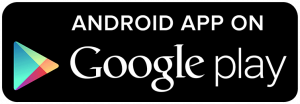29 January - Puzzle Day
Jigsaw puzzles, crossword puzzles, 3D puzzles, wordsearch puzzles, sudoku puzzles, word ladder puzzles, logic puzzles… What's not to love about them?
Puzzles can help you and your English students to boost your brainpower and improve your memory and problem-solving skills. So, on this Puzzle Day, here are some fun ways to celebrate with your English learners!
The Great Puzzle
Have your young students work in pairs to create a poster inspired by the following quote:
Who in the world am I?
Ah, that's the great puzzle.
(Lewis Carroll, 'Alice in Wonderland')
And then have your students transform the posters into puzzles! Have a pair cut each poster into pieces using scissors or a crafting knife. And have another pair put the puzzle together. That's it!
tip 🧩 Your young students will have to give orders and instructions, so that's a great opportunity to help them to practise using imperatives in English. For older English learners, you could focus on explaining how a question tag after an imperative clause can soften the imperative and make us sound more polite and less strict.
Don't forget to take a photo, share your English learners' creations and encourage more English teachers and students to join in the fun! Use the hashtag #puzzleday_eplaneteducation on Facebook and Instagram, so we can see how your projects turned out!
tip 🧩 You can also find many crossword puzzles and other fun activities that help students to deepen their knowledge and skills in a highly enjoyable way in our Extra Practice Activities series for young learners.
The History of Puzzles
For your adult English language classes, start your lesson with a logic puzzle. Using logic puzzles is a great way to motivate your older English learners to speak and interact with each other. It's also a fun way to teach new vocabulary.
Then motivate your English students to learn more about the history of puzzles and present interesting and fun facts about them. You could ask them the following questions to help them to start a WebQuest:
- • When did the first crossword puzzle appear?
(in a New York publication in 1913)
- • What is a cruciverbalist?
(a person who likes creating or solving crossword puzzles)
- • Who created the first word ladder puzzle?
(Lewis Carroll, the author of 'Alice in Wonderland')
- • Who was the first person to solve a Rubik’s Cube?
(its creator, Erno Rubik, in 1974)
Is there anything more satisfying than putting the last piece of a puzzle in the right place? Happy Puzzle Day!




Leave a Reply
Your email address will not be published. Required fields are marked